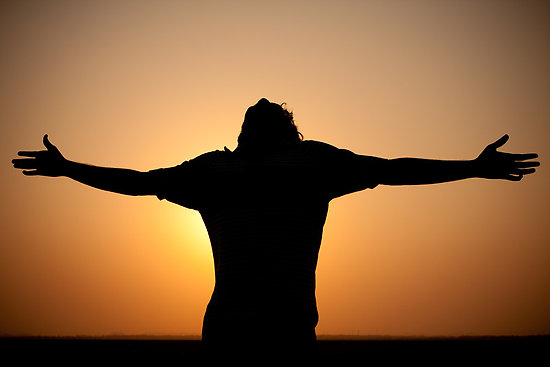Welcome to Parshat Yitro! One of the two places in the Torah where we're told about the Jewish people receiving the 10 Commandments.
People don't always question the 10 commandments considering that they're pretty fundamental principles of faith. But if there's anything to learn about Judaism, it's that we're a religion of questioning. So here's a Question...
Statement #1 of the Big Ten is: I am Hashem your G-d who took you out of Egypt.
Now, t's really nice that G-d is introducing Himself to us from the get-go, but why is "the G-d who took you out of Egypt" the phrase He uses to describe Himself? It seems to me that He's forgetting something from the top of His resume! How about: "I am Hashem your G-d, the CREATOR OF THE UNIVERSE!" I would say that bringing the world into existence is a teensy bit more significant than saving a measly little nation from the bondage of slavery. G-d chooses instead to refer to Himself as the one who took us out of Egypt?! Really?! It's like your mom introducing herself as the one who drove carpool today instead of saying I'm the one who carried you for 9 months, gave birth to you, and have been dealing with the consequences of raising you ever since. So why isn't G-d going all out to sell Himself here?
Answer is.... drumroll please....that actually, G-d IS going all out -- and is doing so in a way that's far far better than calling Himself the Creator of the Universe.
Here's why:
The problem with referring to Himself as the Creator of the Universe is that G-d's goal in giving us the Torah is to build a relationship with us. (You should feel pretty awesome about that -- you basically got a marriage proposal from G-d). Just like you build a strong relationship off of what you have in common, the problem with G-d introducing Himself as the Creator of the Universe is that when it comes to the creation of the world, WE WEREN'T THERE!
G-d wants us to know how much He cares about us, that He went through unbelievable measures to save us, and so "G-d who took you out of Egypt" is much more personal and is more important to our relationship than anything else -- even the creation of the world. (In case you were wondering why we seem to talk about leaving Egypt all the time, even in kiddush and on holidays, this may be part of the reason why).
But you know what's REALLY cool? G-d taking us out of Egypt ALSO shows His power as G-d, and that makes it an even better introduction.
1. It proves He created the world. (Only the One who created nature would be capable of breaking all its laws through the 10 plagues and then would be successfully able to put the laws of nature back together again afterwards).
2. It proves that G-d is involved in the world, and didn't just abandon us after creation. (There's a lot of divine involvement in the story of the Exodus. Only a G-d who is actually involved in the world could specifically cast a plague on Egyptians and not the Jews when they were all so closely intermingled).
3. It proves that G-d is fair. (When the Egyptians drowned in the sea, they didn't all die the same way -- they died according to how evil they were. The ones who were not as bad had a quick death where they drowned in the water like heavy lead, whereas the really evil ones drowned like straw that takes a torturously long time to sink).
At second glance, G-d's introduction is deep stuff. It confirms His power as an involved and just Creator of the world, who is choosing to build a relationship with us... His Jewish people.
Now that's pretty awesome.
Nice to meet you, G-d. I'm glad to be on Your team.





